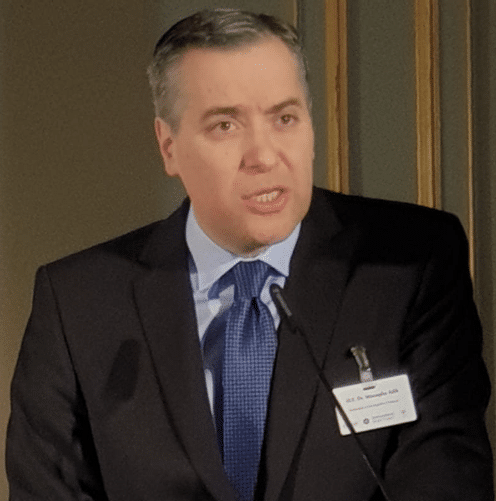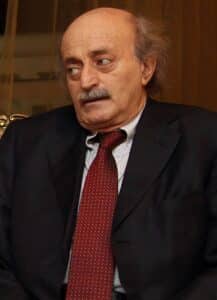Lebanon has a new Prime Minister. Mustapha Adib received 90 of the 120 votes in Parliament on the 31st of August. Being a former diplomat, Adib was barely known to the Lebanese public, but still considered close to the country’s political elites such as former Prime Ministers Najib Mikati and Saad Hariri. Within a day after his election, protestors took to the streets calling for his resignation as well as that of the complete government.
Prime Minister Mustapha Adib
Adib holds a doctorate in law and political science and has taught at various universities. Before he became Lebanon’s ambassador to Germany in 2013, he was head of the Center for Middle Eastern Strategic Studies. In addition, he was an advisor to Lebanon’s former Prime Minister Najib Mikati for more than two decades. Now, at 48, Adib became Prime Minister himself. Officially he is an independent politician, although this is not widely accepted since he is allegedly affiliated with politicians from various parties, including the Future Movement and the Glory Movement.
President Emmanuel Macron
Adib’s day of appointment coincided with French President Macron’s second visit to the country since the catastrophic explosion that destroyed part of Beirut, killed around 200 people and wounded more than 6,000. The main reasons for Macrons’ visits to Lebanon were to stress on political reforms and discuss financial aid. He gave the politicians three months to regulate the country and enforce political reforms otherwise the consequence could be sanctions against political leaders. In addition, Macron would not hesitate to discourage the international community from providing financial aid to Lebanon. According to senior officials, the French president was also the reason why Adib was chosen as the country’s new Prime Minister within 48 hours. Furthermore, Macron informed the public that the politicians ensured him that a new government will be formed within 15 days. Both of these timeframes are unprecedented in Lebanese politics.
Protests
Within 24 hours after the appointment of the new Prime Minister, protestors took to the streets. They demanded Adib’s resignation as well as that of the whole government. The protestors also called for justice for the victims of the explosion in Beirut, economic improvements and a secular state without the power division between religious sects. At the same time, they rejected the interference of foreign governments in their domestic affairs, aiming at President Macron.
Sources: Aljazeera1, Aljazeera2, Aljazeera3, Aljazeera4, Alarabiya, BBC, Reuters
Image: Wikimedia



